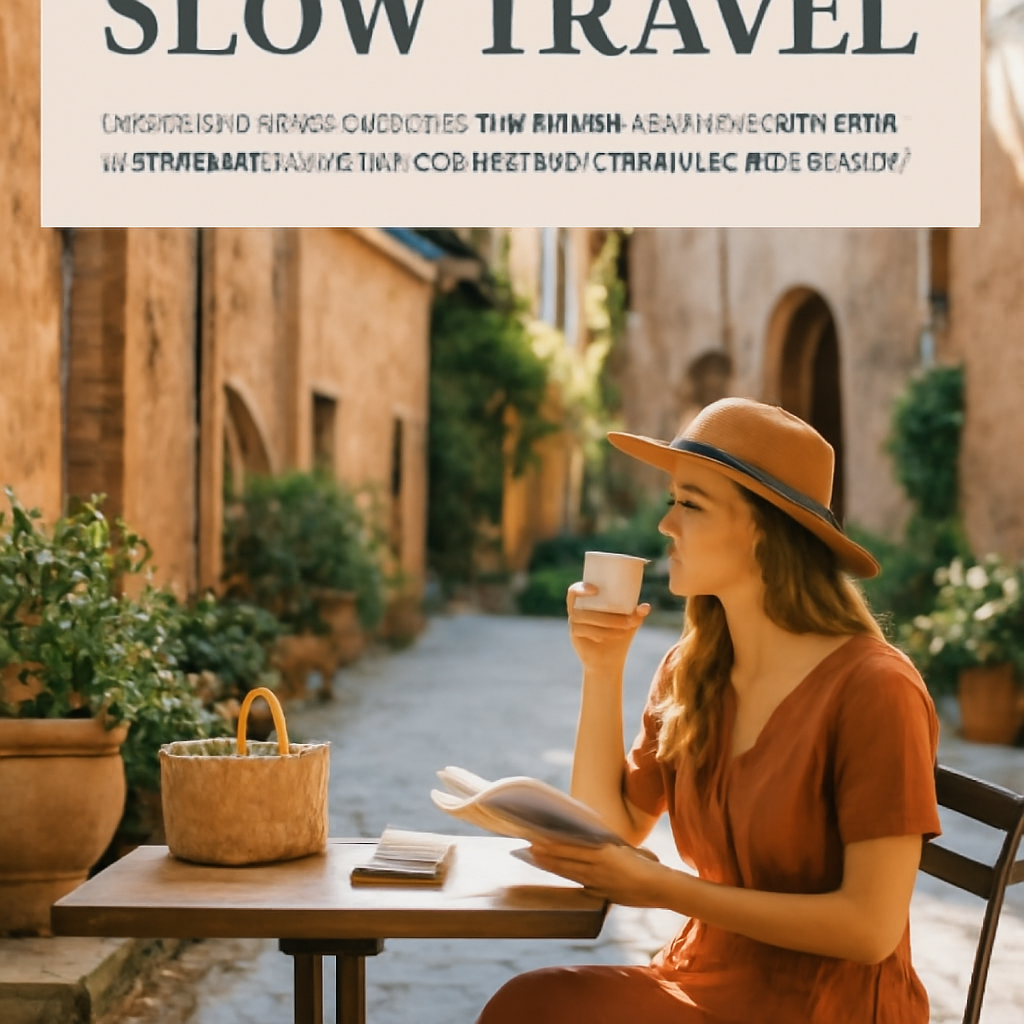Location
Mount Vernon, WA 98274
Location
Mount Vernon, WA 98274

As travelers seek deeper connections and meaningful experiences, the trend of slow travel is gaining momentum. This approach emphasizes quality over quantity, encouraging individuals to immerse themselves in local cultures and communities, fostering a more sustainable way of exploring the world.
In recent years, a fascinating shift has emerged in the travel industry as more individuals are turning towards slow travel, a movement that prioritizes meaningful experiences over the frenetic pace of typical tourism. This trend caters to the growing desire for mindfulness and connection, offering an alternative to the often superficial visits to multiple destinations.
Slow travel encourages explorers to linger in a single location, allowing them to dive deeply into the culture, history, and lifestyle of the places they visit. This approach not only supports local economies but also fosters a greater understanding and appreciation of diverse communities. As travelers forgo the traditional checklist of must-see landmarks, they are opting instead for authentic experiences-whether it’s learning to cook a regional dish, participating in a local festival, or volunteering with community initiatives.
Recent studies indicate that 72% of travelers are now seeking immersive experiences that allow them to engage directly with local traditions and customs. This desire for authenticity is reshaping how travel companies market their services, leading to a rise in personalized itineraries and community-based tourism initiatives. For example, platforms that connect travelers with local hosts for unique experiences have seen substantial growth, as they facilitate deeper connections that enhance the travel experience.
As environmental concerns continue to rise, slow travel also addresses sustainability by promoting eco-friendly practices. By spending more time in fewer places, travelers reduce their carbon footprint and contribute to the preservation of local ecosystems. Many slow travelers are also choosing to use public transportation, cycle, or walk, further minimizing their environmental impact.
Moreover, the rise of social media has paradoxically fueled the slow travel movement. While many associate travel with the need to document every moment online, a growing number of individuals are consciously choosing to disconnect from their devices to fully engage with their surroundings. This intentional choice reflects a broader cultural shift towards valuing presence and connection over digital validation.
In essence, slow travel aligns perfectly with the current zeitgeist of mindfulness and intentional living. It invites travelers to reflect on their journeys not just as a means of escape, but as an opportunity for personal growth and connection with the world around them. As this trend continues to blossom, it’s clear that the future of travel will be defined by a more thoughtful, enriching approach.